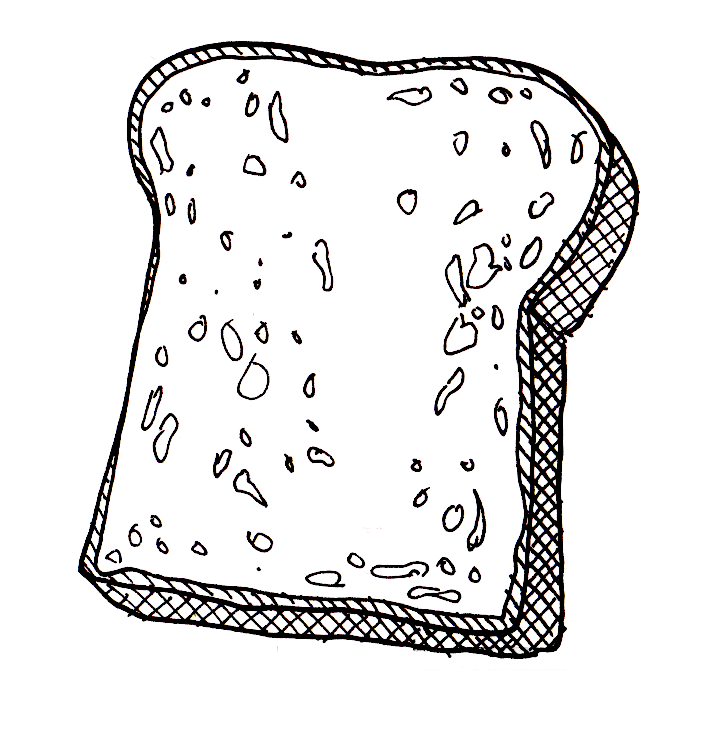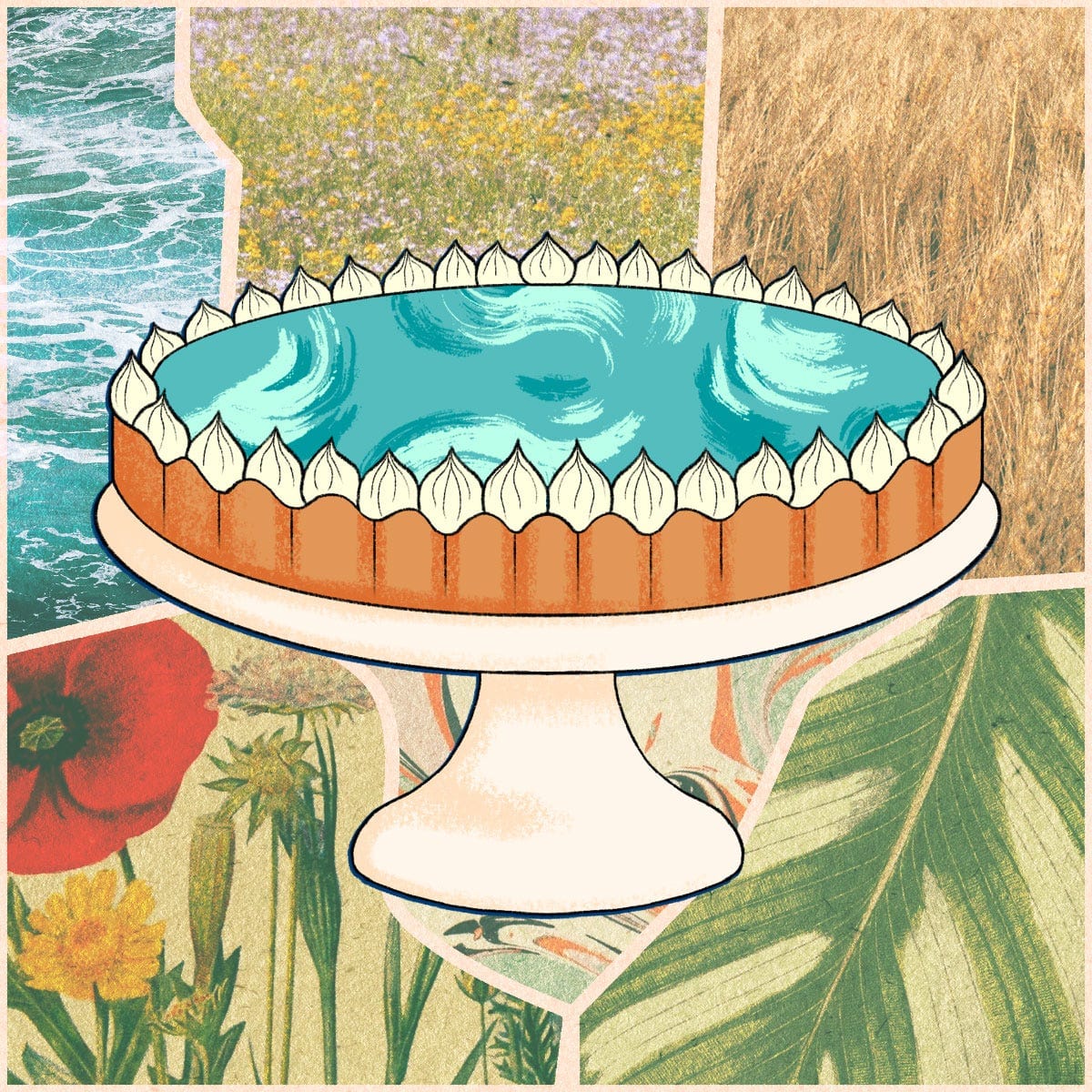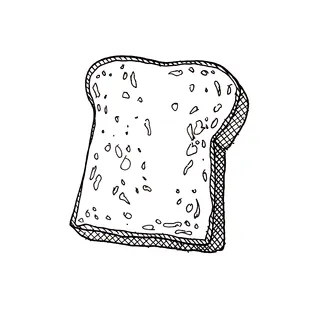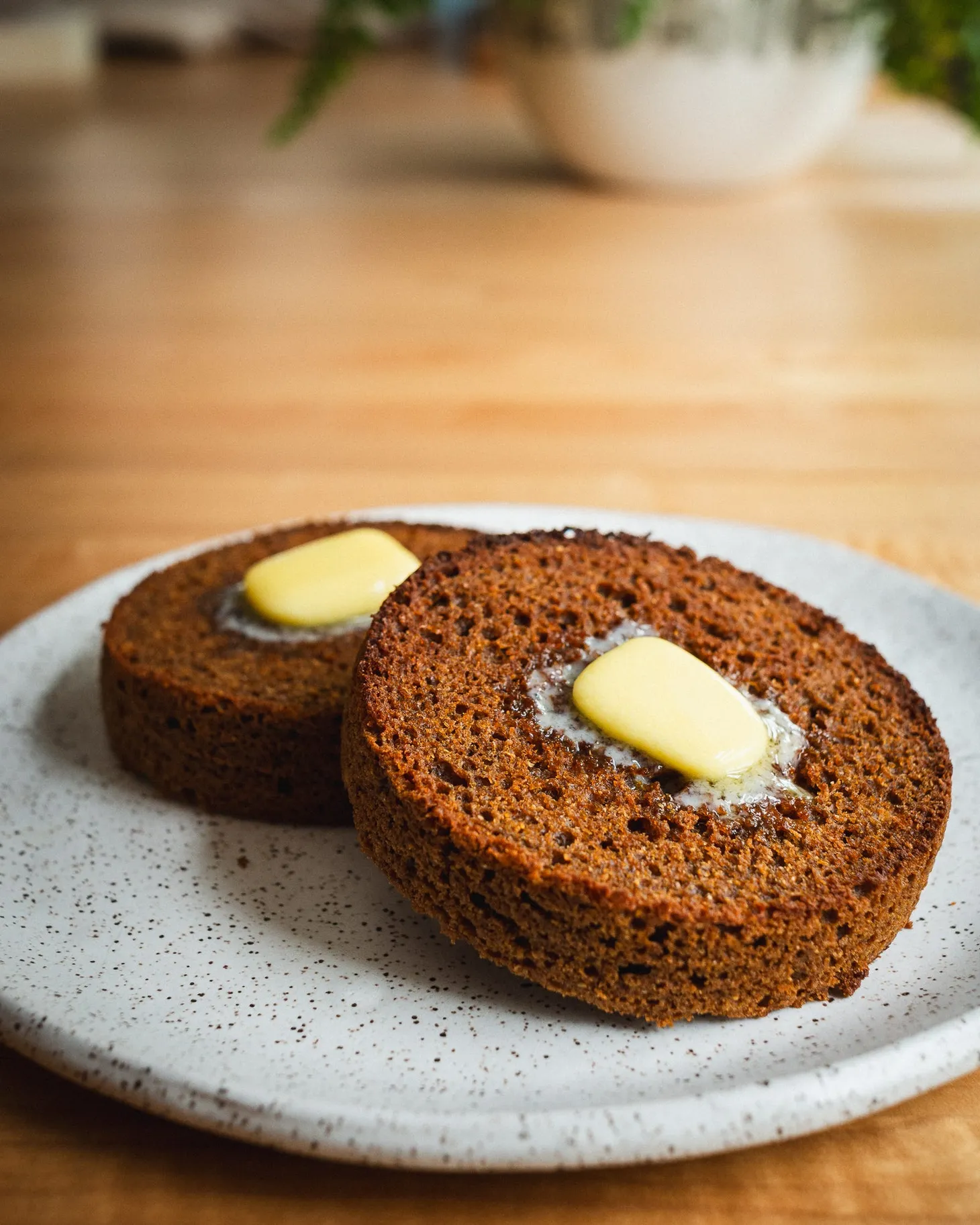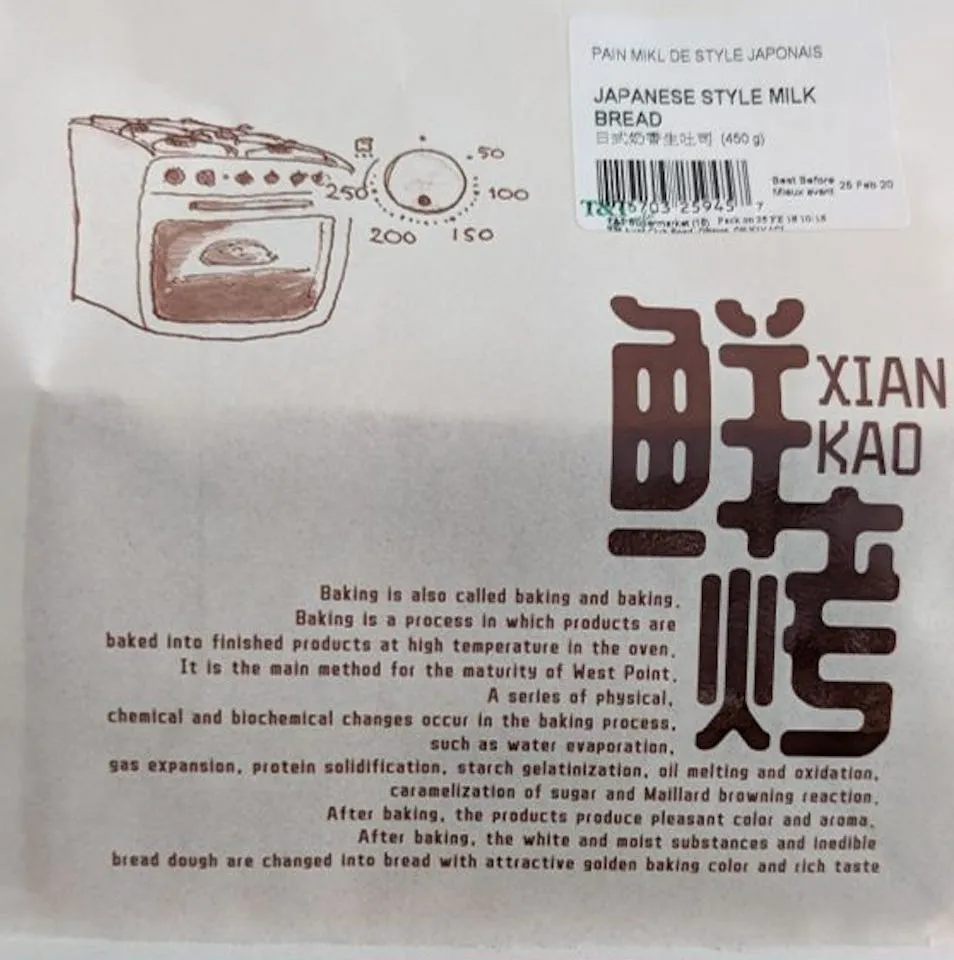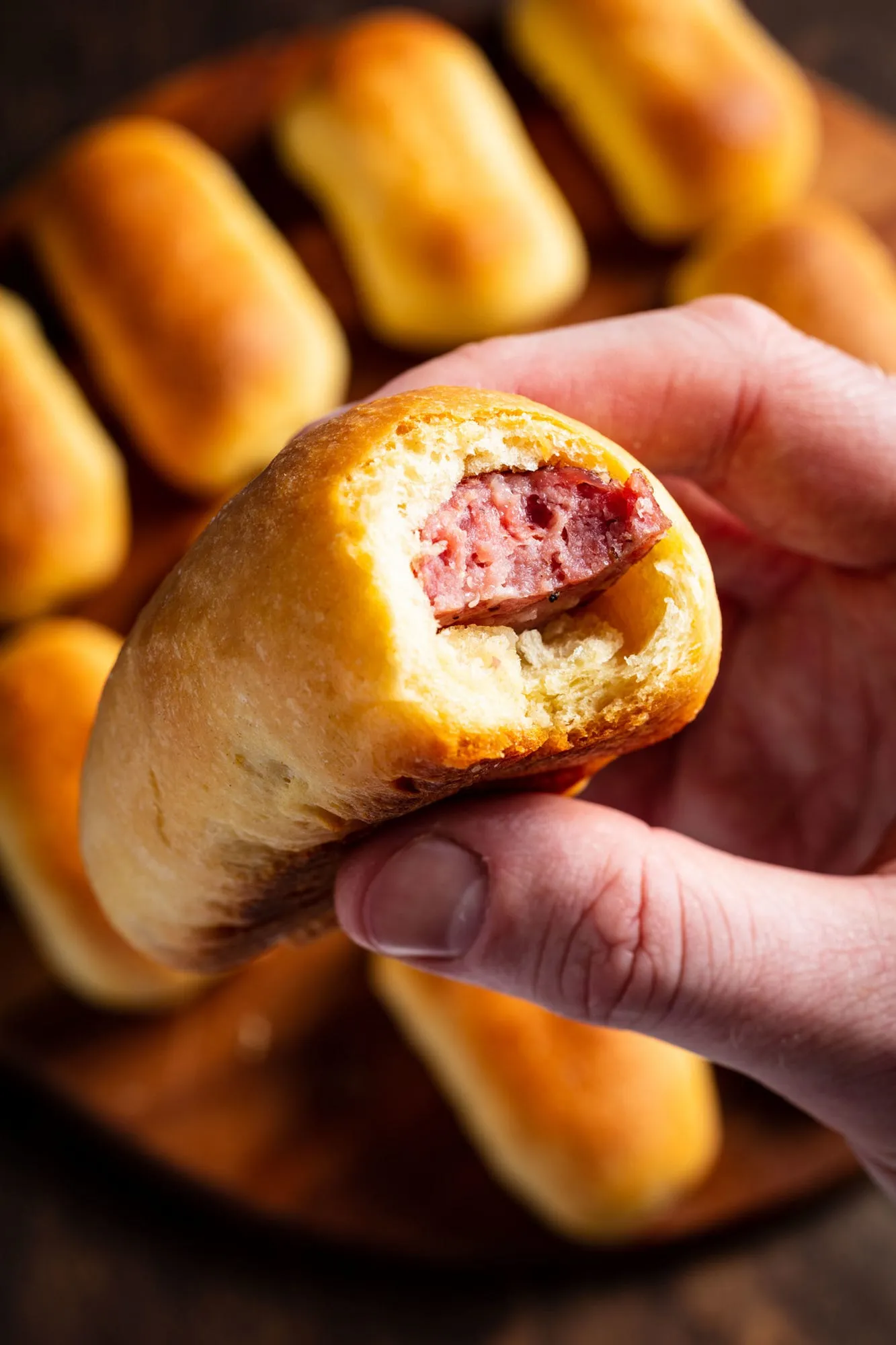Friday Bread Basket 11/22/24
Newsletter newsletter
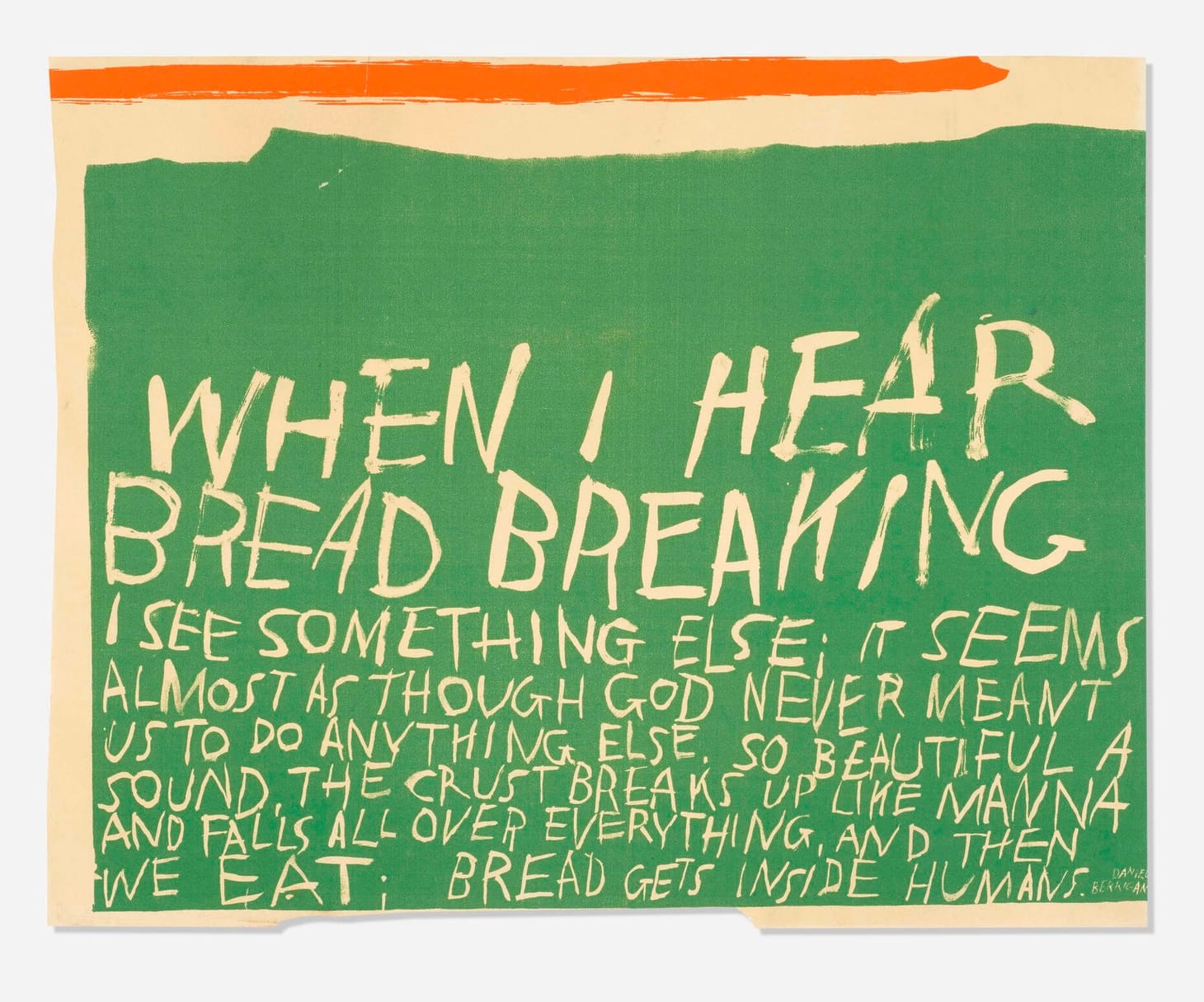
Table of Contents
Hello from the Wordloaf Friday Bread Basket, a weekly roundup of links and items relating to bread, baking, and grain. This week’s edition highlights three new/new-ish grainy newsletters I think should be on your radar.
But before I jump into them, I wanted to also make another plug for Bluesky, the social media alternative to the bad place. If you miss the bad place when it was a good place, Bluesky is really shaping up into something like it was then, especially now that so many people of note (in the food world and beyond) are using it. I’ve been a user for a few years now, and I have found it really great place to connect with friends and colleagues, in part because it has many features designed to make your experience as troll-free as possible. It can take awhile to get used to it, as a result, but most people seem to figure it out pretty quickly. If you want to read a primer on making the most of it, this is an excellent post by one of the site’s power users. (Warning, the post is long, because there is a lot to learn; maybe save it until after you’ve poked around a while.)
Ars Pistorica

Sweet starter starter is now posting more regularly on his newsletter, Ars Pistorica, so you should be sure to sign up for it if you haven’t already. A recent post entitled ‘A Letter to New Bakers,’ lays out pretty clearly what to expect from him—a heady mix of high-level discussion of the biodynamics of flour-based baking of all kinds, and sage advice on how to orient yourself to it on a practical basis:
The amateur stands in stark contrast to the professional, in knowledge, accrued experience, technique, and production environment. We see the same skill gap between recreational and professional sport players.
I’ll never be Lebron James, Katie Ledecky, Muhammad Ali, or Lionel Messi. Chances are you won’t be, either. This doesn’t stop us from daydreaming, or playing catch, because the stakes for the enthusiast are defined by joy.
That’s the only metric that should count when baking at home or in any non-professional setting. You should bake because it brings you and those you love joy.
When you mix a paste, dough or batter to be baked, whether for yourself or others, I hope you do so because it brings you or others joy.
If an ingredient, process or formula detracts from that joy, then it’s unnecessary. Simplify, keeping only those variables necessary to bring you or others joy.
DAYBAKER
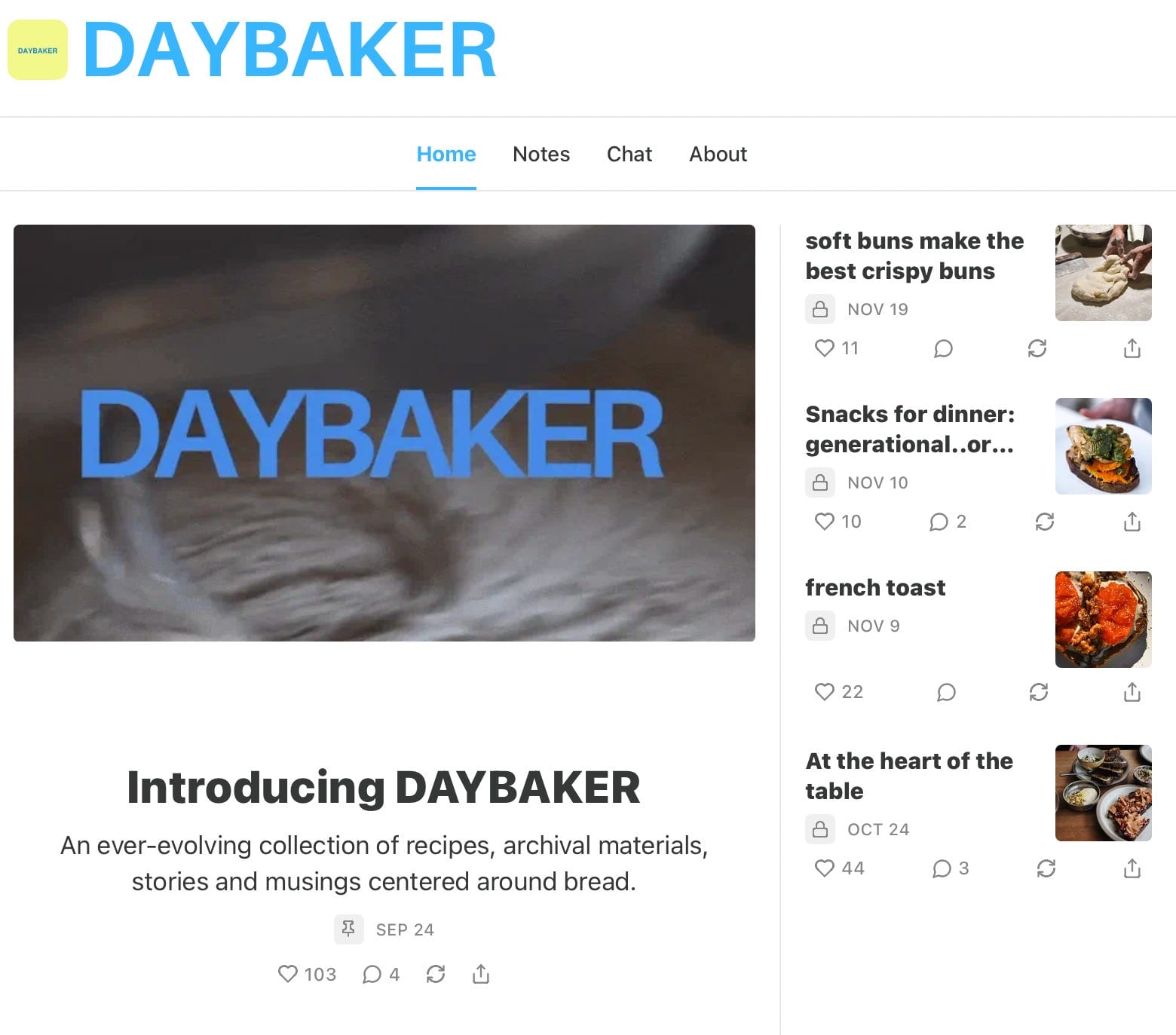
Another baker who has joined the newsletter fray is Tartine’s , who launched DAYBAKER in September. An early post of his is an exploration of the many meanings of the term ‘country bread’:
I had heard of Pain Poilane by the time I was apprenticing with Richard Bourdon, but I hadn’t made it to France yet. Richard was using organic stone ground flour from Lindley Mills in North Carolina and he had a thing about dough hydration. He fervently believed that wheat bread dough needed to be properly hydrated during fermentation so that when it was baked there was enough hydration to properly gel the starch (fully cook) so it would be more digestible. Higher hydration and fully baking the bread to internal temperature of 210+ F after a long slow natural fermentation made for a much healthier loaf from the perspective of digestion and nutrient assimilation. I grew up eating brown rice and working in health food stores as a teen, so he was speaking my language.
It seems endearingly quaint now when I remember another thing that Richard taught me about mixing higher hydration doughs as an apprentice: it was literally job security. In lots of ways Richard was extremely efficient - he liked to do things deliberately. The goal was to minimize daily maintenance like cleaning and organizing. Mostly because he ended up doing a lot of this daily upkeep himself. Reliable workers were scarce and seasonal in the small town along the Housatonic River. But high hydration bread dough was challenging, messy, and non- negotiable. At first the dough seemed impossible to work with- like shaping pancake batter. Richard mused that no machine could ever handle the complex dance it takes to maneuver such wet doughs into a final loaf of handsome country bread. That was 1992.
Pale Blue Tart
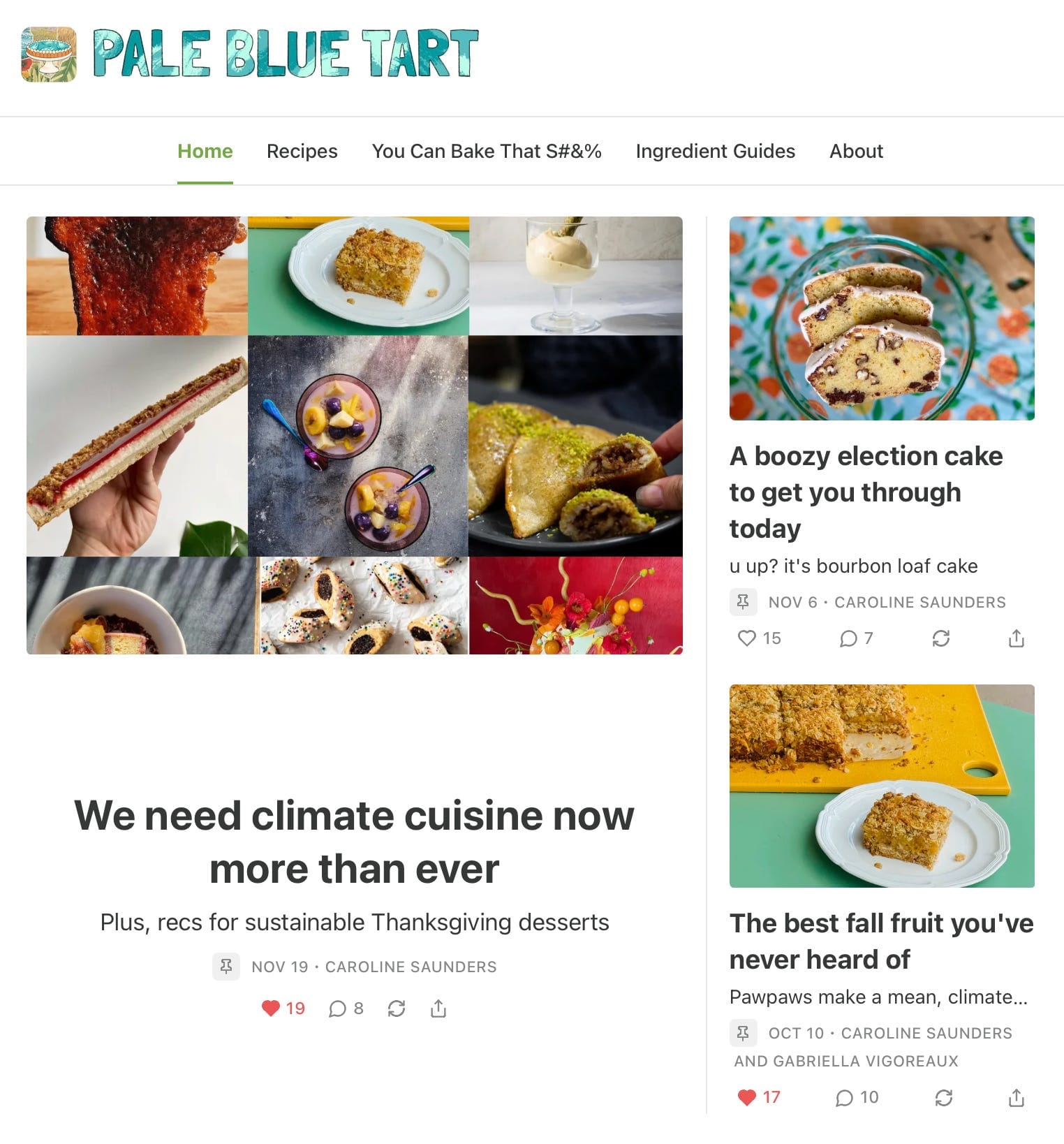
Finally, there’s Pale Blue Tart, which is not at all new, but one I should have recommended ages ago. On it, Caroline explores baking with climate-friendly ingredients and techniques, sharing recipes of her own and along with those of other bakers, many of whom she interviews (a chat with plant-forward pastry chef Philip Khoury is a recent highlight).
Her latest post—’We need climate cuisine now more than ever’— is something of a restatement of the newsletter’s values and goals:
That’s why a big part of my backend work for this newsletter is a treasure hunt. I’m constantly scoping out bakery menus, new cookbooks, and Instagram for the most tantalizing treats that are also sustainable, like Lapita Sherbert’s sweet-and-sour-plum sherbertmade with low-carbon soy milk, Beth Dooley’s chocolate butterscotch bar that’s made even butterscotch-ier because perennial Kernza flour comes by that flavor naturally, and @fremecraiche’s waste-not, canelé-flavored ice cream. I’m slowly getting a sense of the field of bakers and pastry chefs who are baking in these various sustainable ways; and I republish their recipes in tandem with interviews and stories as often as I can manage.
My hope is that any recipe I share here is a two-fer: A guide for those of us who already care deeply about the climate and want to bring that care into our cooking habits, and the kind of thing that, if pictured on the front of a collaborative climate cookbook or brought to a holiday party, could draw in a broader set of foodies and begin to change their eating habits by the power of dessert glam alone.
Caroline is currently working on a post for Wordloaf, which I hope to share in December, right in time for your holiday baking needs.
Shema
You who live secure
In your warm houses
Who return at evening to find
Hot food and friendly faces:
Consider whether this is a man,
Who labours in the mud
Who knows no peace
Who fights for a crust of bread
Who dies at a yes or a no.
Consider whether this is a woman,
Without hair or name
With no more strength to remember
Eyes empty and womb cold
As a frog in winter.
Consider that this has been:
I commend these words to you.
Engrave them on your hearts
When you are in your house, when you walk on your way,
When you go to bed, when you rise.
Repeat them to your children.
Or may your house crumble,
Disease render you powerless,
Your offspring avert their faces from you.
—Primo Levi
That’s it for this week’s bread basket. Have a peaceful, restful weekend. See you next week.
—Andrew
wordloaf Newsletter
Join the newsletter to receive the latest updates in your inbox.
